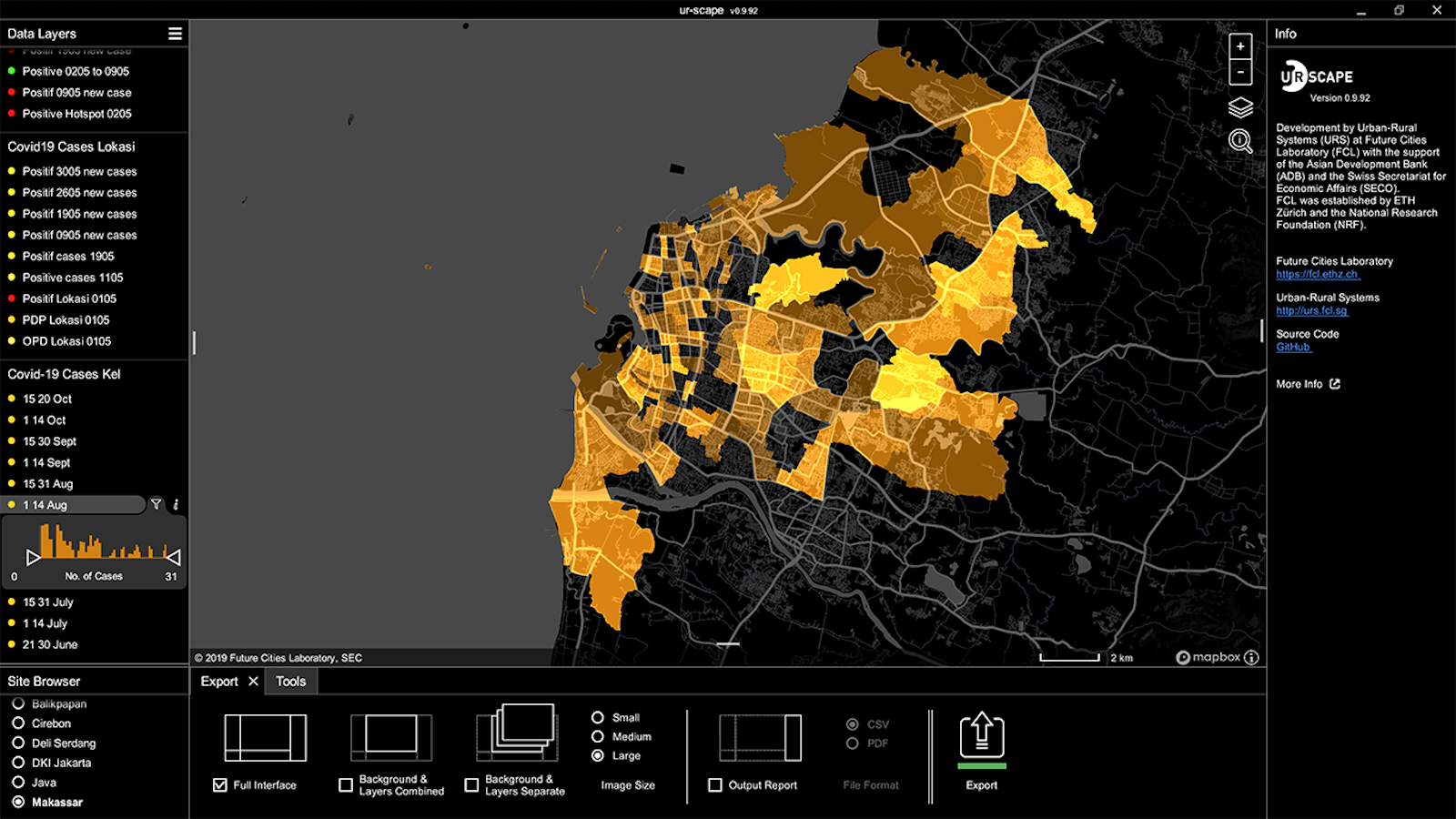Leveraging data for post-COVID urban planning

The recent pandemic and its massive economic and social impacts have emphasised the urgency of developing (pandemic) resilience in cities. Cities around the world have been forced to reflect on their ability to mitigate, manage and respond to the pandemic. How do we make our cities pandemic-proof?
The “Leveraging data for urban design and planning in post-COVID cities” project aims to develop a guide for cities to leverage available data to enhance planning policies post-Covid. Specifically, it will address the following questions:
- What kinds of data are relevant to understanding the impacts of Covid-19 on cities?
- How might existing and new data be gathered, managed and stored?
- What are the various ways to analyse such data?
- How might those analyses support transparent and collective decision making, urban design and planning?
The development of the guide follows Future Cities Laboratory’s (FCL) Design-Research (DR) approach, which revolves around seven actions: sense, scope, gather, experiment, situate, theorise and narrate. The DR approach combines design practice and scientific research. Design offers transdisciplinary creativity, stakeholder participation and visual communication; while research offers evidence-based insights, system perspectives and quantitative tools. In combination, design and research can draw out the conflicting impulses underlying complex problems such as function, profit, ethics, comfort, convenience, identity, security, fear, satisfaction, aspiration and desire. In so doing, DR aims to bring these impulses into dialogue to produce balanced solutions and empowering visions.
At the centre of this project is the case study of the city of Makassar in Indonesia. It leverages on FCL’s previous engagement in supporting the spatial data analysis of COVID-19 incidences in the city.
This project is funded by the Asian Development Bank (ADB) under the framework of Asean Australia Smart Cities Trust Fund (AASCTF).